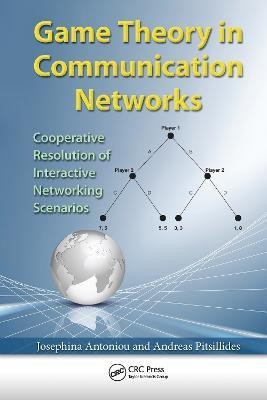Game Theory in Communication Networks(English, Hardcover, Antoniou Josephina)
Quick Overview
Product Price Comparison
A mathematical tool for scientists and researchers who work with computer and communication networks, Game Theory in Communication Networks: Cooperative Resolution of Interactive Networking Scenarios addresses the question of how to promote cooperative behavior in interactive situations between heterogeneous entities in communication networking scenarios. It explores network design and management from a theoretical perspective, using game theory and graph theory to analyze strategic situations and demonstrate profitable behaviors of the cooperative entities. The book promotes the use of Game Theory to address important resource management and security issues found in next generation communications networks, particularly heterogeneous networks, for cases where cooperative interactive networking scenarios can be formulated. It provides solutions for representative mechanisms that need improvement by presenting a theoretical step-by-step approach. The text begins with a presentation of theory that can be used to promote cooperation for the entities in a particular interactive situation. Next, it examines two-player interaction as well as interactions between multiple players. The final chapter presents and examines a performance evaluation framework based on MATLAB (R). Each chapter begins by introducing basic theory for dealing with a particular interactive situation and illustrating how particular aspects of game theory can be used to formulate and solve interactive situations that appear in communication networks regularly. The second part of each chapter presents example scenarios that demonstrate the applicability and power of the theory-illustrating a number of cooperative interactions and discussing how they could be addressed within the theoretical framework presented in the first part of the chapter. The book also includes simulation code that can be downloaded so you can use some or all of the proposed models to improve your own network designs. Specific topics covered include network selection, user-network interaction, network synthesis, and context-aware security provisioning.


